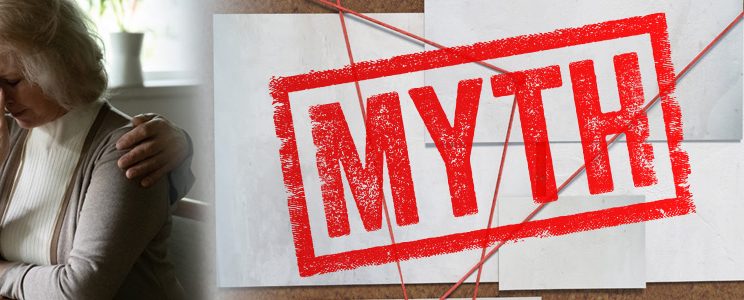Overview
The Centers for Disease Control and Prevention (CDC) engaged the CDC’s federally funded research and development center (FFRDC) – known as the CMS Alliance to Modernize Healthcare — to support the National Association of Medical Examiners (NAME) update the recommendations for investigating, diagnosing, and certifying opioid-related deaths. RTI International, an alliance partner of the FFRDC, led the project. The revised recommendations were published in the 2019 NAME Position Paper: Recommendations for the Investigation, Diagnosis, and Certification of Deaths Related to Opioid and Other Drugs. These recommendations were intended to cover the new face of the opioid crisis more fully, including emerging synthetic drugs and interpretation of deaths involving multiple drugs.
A course titled “Investigation and Certification of Drug Toxicity Deaths” was created as a training resource. This training course includes four modules focusing on the following objectives:
- Identify the key investigative stages that teams use for conducting death investigations when there is a suspected drug-related death.
- Describe best practices related to performing autopsies when there is a suspected drug-related death.
- Describe the best practices associated with using toxicological testing for establishing the cause of death.
- Explain the essential components for consideration when determining the cause and manner of drug-related deaths.
- Summarize how to classify an accurate death associated with prescription and illicit drugs.
Continuing Education Credit
In support of improving patient care, this activity has been planned and implemented by Centers for Disease Control and Prevention, and RTI International. The Centers for Disease Control and Prevention is jointly accredited by the Accreditation Council for Continuing Medical Education (ACCME), the Accreditation Council for Pharmacy Education (ACPE), and the American Nurses Credentialing Center (ANCC), to provide continuing education for the healthcare team.
Continuing Medical Education for Physicians (CME):
The Centers for Disease Control and Prevention designates this enduring activity for a maximum of 3.75 AMA PRA Category 1 Credits™. Physicians should claim only the credit commensurate with the extent of their participation in the activity.
IACET Continuing Education Units (CEU):
The Centers for Disease Control and Prevention is authorized by IACET to offer 0.4 CEU's for this program.
ABMDI Continuing Education Credits
RTI International is proud to offer 3.75 ABMDI Continuing Education Credits for this training. ABMDI credits will be calculated by total time spent watching. For the best viewing experience, each individual session is designed to be watched in its entirety in one sitting.
Each session results in a certificate of completion and can only be completed one time for credit. If you experience any difficulty accessing your certificates, please contact forensicCOE@rti.org.
We are unable to administer CE credit to users watching in groups. In order to receive your CE credits, you must be logged in to our learning ecosystem under your own name. If you are not logged in under your own name, you will not receive CE credits.
Education Modules
Module 1: Overview of Medicolegal Death Investigation
The ultimate goal of the medicolegal death investigation is to provide information to determine a truthful, logical, and scientifically unbiased statement of the cause and manner of death. The medical examiner or coroner may issue the death certificate for deaths within their jurisdiction.
Module 2: Introduction to Scene Investigation
The scene investigation of any drug-related death requires a complete investigation of the circumstances of death, the death scene, and past medical history. When prescription and illicit drugs are suspected, there are special considerations that apply to the investigation of the death scene.
Module 3: Autopsy & Postmortem Toxicology
In this module, you will cover specifics on the significance of autopsy and postmortem toxicology in the investigation of suspected drug toxicity deaths. Medical examiners/coroners and toxicologists must work together to evaluate all circumstances as they relate to a case.
Module 4: Death Certification for Drug Toxicity Deaths
This module provides instructions on completing the medical section of the certificate of death for acute drug toxicity deaths, sometimes referred to as overdose or poisoning deaths.
Acknowledgment
The CDC and RTI International would like to express great appreciation to all the individuals who made this project possible. We would like to offer special thanks to Dr. Daniel Dye of the University of Alabama at Birmingham School of Medicine, who provided extensive knowledge and expertise to the content development for this training. We would also like to thank the National Association of Medical Examiners (NAME) for their support during the development of the position paper and this training. We are particularly grateful for the assistance given by the CDC staff who worked so hard on this project, including Dr. Margaret Warner and Dr. Kelly Brown. We also wish to acknowledge the help provided by the pilot test participants’ who volunteered to evaluate the training, to ensure its effectiveness.
Related Resources
- NAME Position Paper: Recommendations for the Investigation, Diagnosis, and Certification of Deaths Related to Opioid and Other Drugs 2019
- Working Group on Data Exchange in Medicolegal Death Investigation
- FTCOE Pathology and Medicolegal Death Investigations Resources
- Centers for Disease Control and Prevention Training and Continuing Education Online
- National Association of Medical Examiners (NAME)
Funding for this training was provided by the Centers for Disease Control and Prevention (CDC) (Contract number HHSM500201200008I; Task order Number 200-2016-F-91567).
The opinions, findings, and conclusions or recommendations expressed in this event are those of the presenter(s) and do not necessarily reflect those of the U.S. Department of Justice or the Centers for Disease Control and Prevention.
Contact us at ForensicCOE@rti.org with any questions and subscribe to our newsletter for notifications.


![0-Quality_Training_Standards_Badge-FINAL-01[66] 0-Quality_Training_Standards_Badge-FINAL-01[66]](https://forensiccoe.org/wp-content/uploads/2022/10/0-Quality_Training_Standards_Badge-FINAL-0166-300x300.png)


